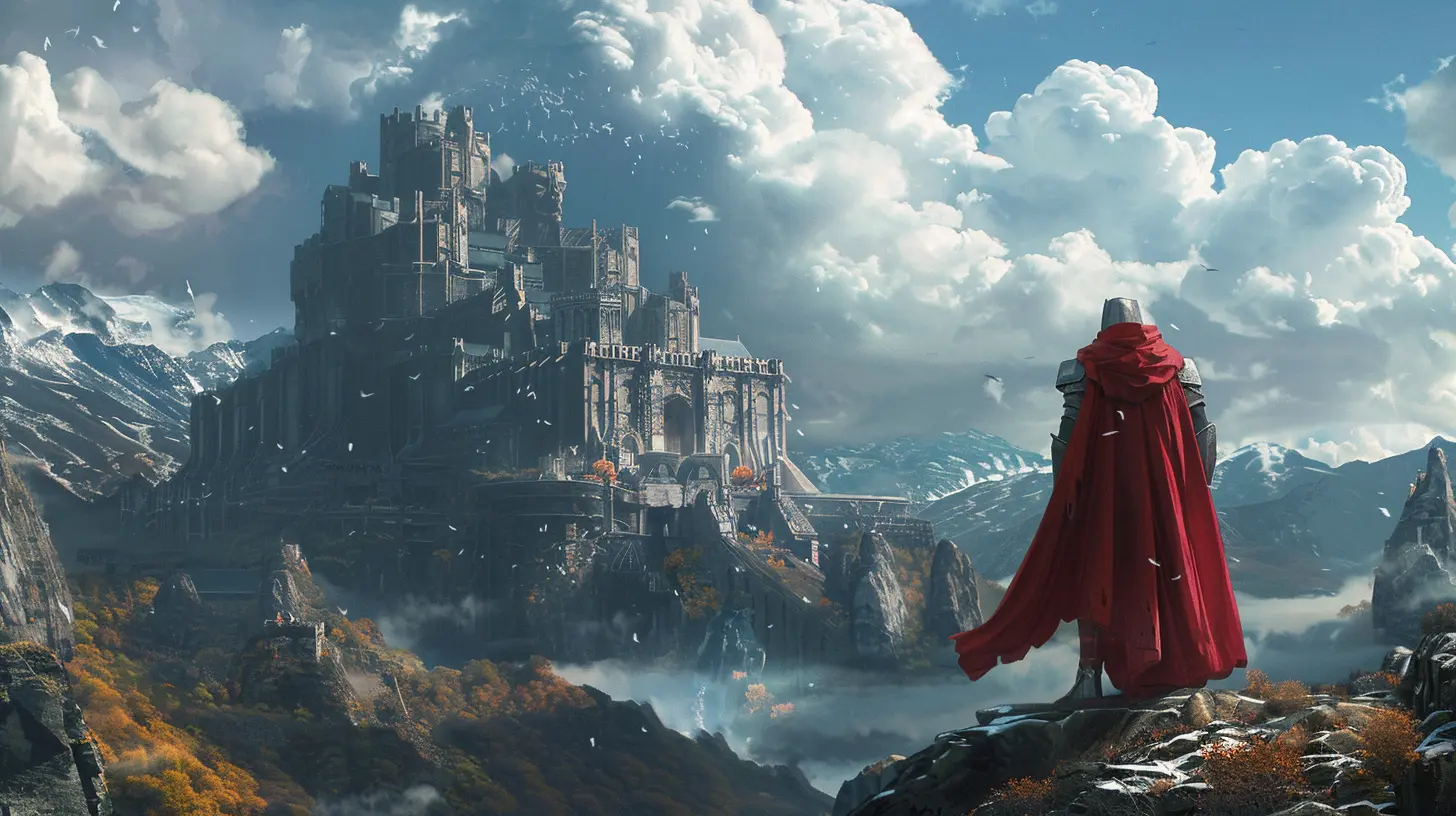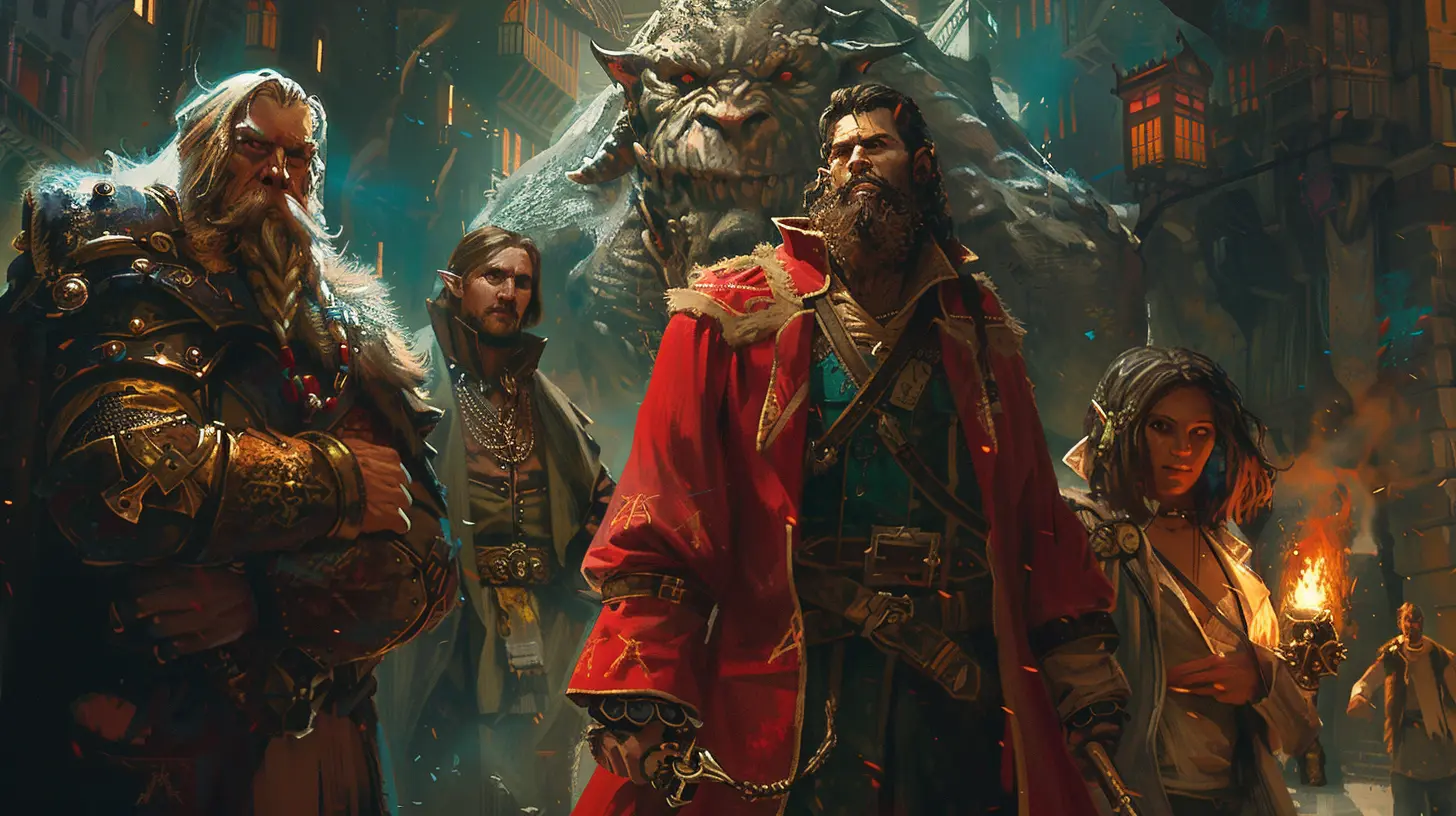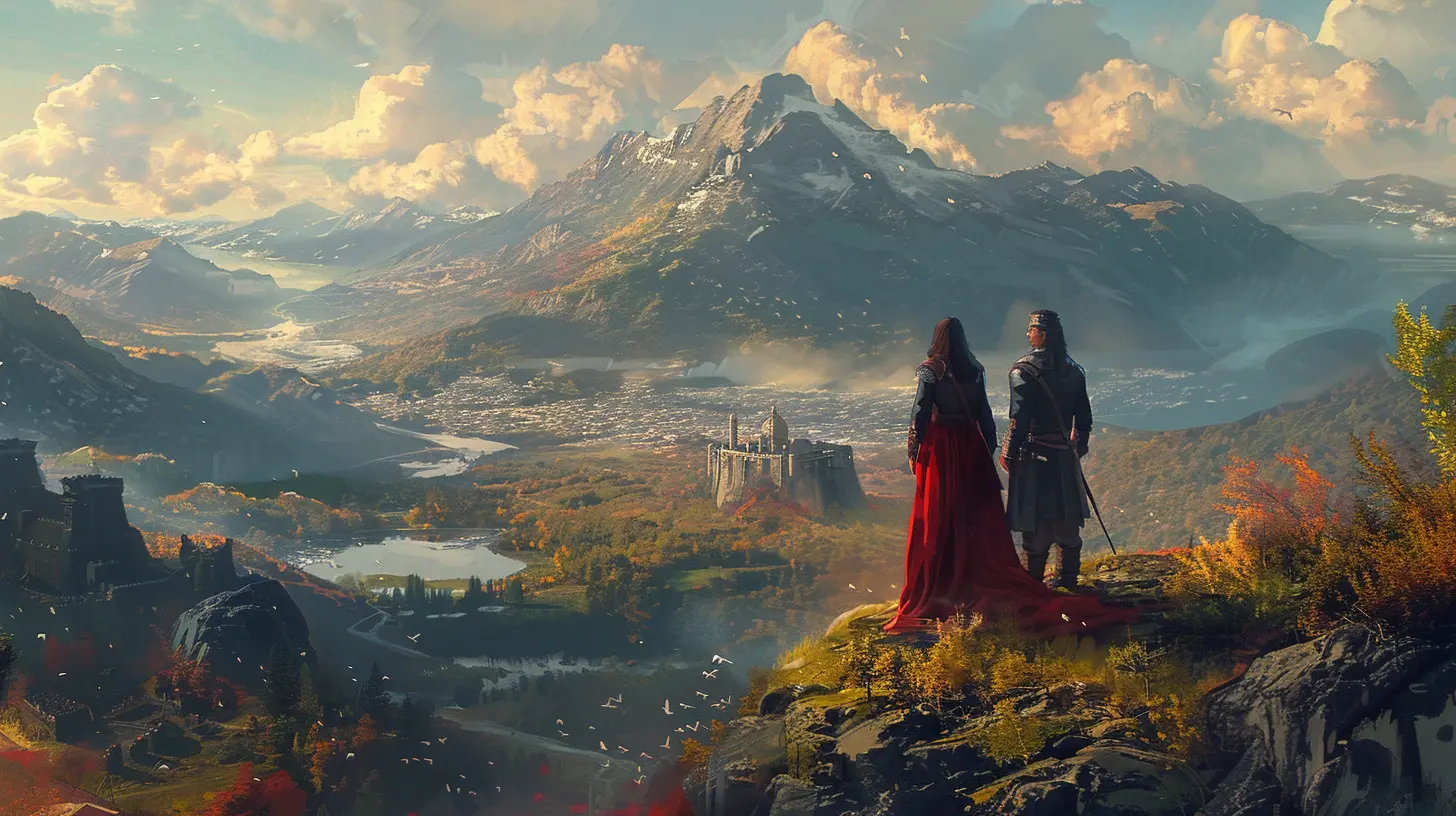The Importance of World Consistency in RPG Storytelling
3 September 2025
When it comes to role-playing games (RPGs), there’s something magical about getting completely lost in a fictional world. From sprawling medieval kingdoms to futuristic dystopias, RPGs create environments where players can explore, fight, and connect with characters in ways that feel incredibly immersive. But here’s the thing—none of that magic works unless the game's world makes sense. World consistency is the glue that holds RPG storytelling together, and without it, the entire experience can fall apart like a poorly built sandcastle.
Whether you’re a gamer, a designer, or just someone interested in storytelling, this topic is worth diving into. So grab your sword (or keyboard), and let’s take a closer look at why world consistency is the unsung hero of RPG storytelling!
What Is World Consistency, Anyway?
Okay, before we geek out, let’s get on the same page—what exactly is "world consistency"? In simple terms, it's the idea that the fictional world in an RPG follows its own set of rules and sticks to them. It’s the promise that what happens within the game’s universe makes sense, even if it’s packed with magic, aliens, or time-traveling chickens.Think about it like this: if the story is the soul of an RPG, then world consistency is the foundation. No matter how epic the narrative or how gorgeous the graphics are, if the world feels disconnected or full of contradictions, players will notice. And trust me, when a player feels like they’re just moving through a hollow shell of a world rather than living in it, it's game over for immersion.
Why Does World Consistency Matter?
1. Immersion Is Everything
Let’s be real—RPG players crave immersion. They want to feel like they’ve stepped into another world where they can live out epic stories and make meaningful choices. When a game is consistent in its storytelling, world-building, and mechanics, it becomes easier for players to suspend disbelief.Imagine playing an RPG set in a dark, gritty universe where everyone’s struggling to survive… and then suddenly, a talking unicorn shows up offering free ice cream. Cool as that might sound, it completely breaks the mood, right? It yanks players out of the experience and leaves them scratching their heads. That’s what happens when consistency is thrown out the window.
2. Building Trust with Players
Consistency also builds trust between the game and its players. When the game world sticks to its own logic, players feel confident that their choices matter and that events will unfold in a way that makes sense. On the flip side, if the game starts breaking its own rules—say, by having an invincible character die in a random cutscene—it can feel like a betrayal.Think of it like a friendship. If your friend keeps changing the rules of a board game just to win, you’re going to be annoyed, right? The same applies to RPGs. Players need to trust the game’s world to play along and invest in the story.
The Key Elements of World Consistency
Not all RPGs are created equal when it comes to world-building, but there are some universal aspects that go a long way in creating a consistent and believable world. Let’s break them down:1. Lore: The Backbone of the World
Lore is what gives an RPG its depth. It’s the backstory, history, and culture that make the world feel alive. However, good lore must also be consistent. If a game establishes that magic is rare and feared, then the streets shouldn’t be flooded with wizards casually hurling fireballs. Contradictions like these disrupt immersion.Pro tip: It’s okay to leave some mysteries in the lore. Players love uncovering secrets, but those secrets should align with the established world. Think of it like puzzle pieces—they may not all be in place yet, but they should fit together eventually.
2. Rules and Systems: The Logic Players Rely On
Every RPG operates on certain rules, whether it’s related to combat, skill progression, or how physics work in the game world. For example, if a game has a magic system that requires mana, players expect that system to be consistent throughout the game.Breaking your own rules without explanation is a quick way to frustrate players. If mana is suddenly infinite during a boss fight with zero explanation, it feels cheap. On the other hand, introducing an in-game artifact that temporarily boosts mana reserves? Now that’s clever storytelling.
3. Character Behavior: Make Them Feel Real
Characters are the heart of any RPG, and their behavior must align with the established world. A noble king should act like a noble king—not randomly run off to join a gang of pirates (unless there’s a solid reason for it).Keep in mind that characters should grow and evolve, but their motivations and actions should always be grounded in the game’s context. If they suddenly make illogical choices for the sake of plot convenience, players will call foul. And honestly, who could blame them?
4. World Design: Little Details Matter
Details matter more than you think. From the architecture of cities to the flora and fauna in the wilderness, every design choice contributes to the world’s consistency. You wouldn’t expect a desert town to be full of lush gardens and waterfalls, right?Even small details—like regional slang in dialogue or worn-down roads in high-traffic areas—can make your world feel more authentic. These subtle touches may not seem like a big deal, but they add up to create a cohesive experience.
When World Consistency Falls Apart
Alright, so what happens when an RPG drops the ball on world consistency? Spoiler alert: It’s not pretty. Players are quick to spot plot holes, weird character decisions, and rules that don’t add up. And once they start noticing inconsistencies, it’s hard for them to stay invested in the story.Let’s take a moment to talk about one of the biggest immersion killers in RPGs—retcons. Retconning (or retroactive continuity) is when a story rewrites past events to fit new ones. Sure, it can be done well, but more often than not, it feels like the writers are trying to slap a band-aid on a plot hole. And guess what? Players notice.
Tips for Maintaining World Consistency in RPGs
Whether you’re a game developer or just daydreaming about designing your own RPG one day, here are some tips to keep your world consistent:1. Document Everything: Keep a detailed record of your lore, rules, and character arcs. Think of it as your game’s “bible” that you can reference whenever you’re adding something new.
2. Playtest, Playtest, Playtest: Sometimes, inconsistencies only become obvious during gameplay. Get fresh eyes on your game to spot any weird gaps or contradictions.
3. Ask “Why?” and “How?”: When creating new elements, ask yourself why they exist and how they fit within the existing world. If you can’t answer those questions, it might be time for a rethink.
4. Listen to Feedback: Players are often the best critics. If they’re pointing out inconsistencies, take it seriously. After all, they’re the ones living in your world.
Consistency: The Unsung Hero of RPG Storytelling
At the end of the day, world consistency might not be the flashiest part of RPG storytelling, but it’s definitely one of the most important. It’s what gives players the freedom to lose themselves in a game without worrying about plot holes or broken rules pulling them back to reality. Think of it like the scaffolding that holds up a skyscraper—it may not be the first thing you notice, but without it, everything comes crashing down.So the next time you’re diving into an RPG or dreaming up your own, remember this: world consistency isn’t just about making things logical—it’s about making them believable. And when a game’s world feels real, the stories you create within it become unforgettable.
all images in this post were generated using AI tools
Category:
Role Playing GamesAuthor:

Madeleine McCaffrey
Discussion
rate this article
2 comments
Kara Graham
World consistency enriches immersion, enhancing player investment in RPG narratives.
December 10, 2025 at 3:50 AM

Madeleine McCaffrey
Thank you! I completely agree—world consistency is crucial for deep immersion and player engagement in RPGs. It helps players connect with the narrative on a deeper level.
Miriam Richardson
World consistency in RPG storytelling enriches our adventures, immersing players in vibrant, believable realms. It’s the foundation that transforms a game into an unforgettable journey of discovery and growth!
September 9, 2025 at 5:02 AM

Madeleine McCaffrey
Thank you! I'm glad you resonate with the importance of world consistency—it truly elevates the RPG experience and deepens player engagement.


